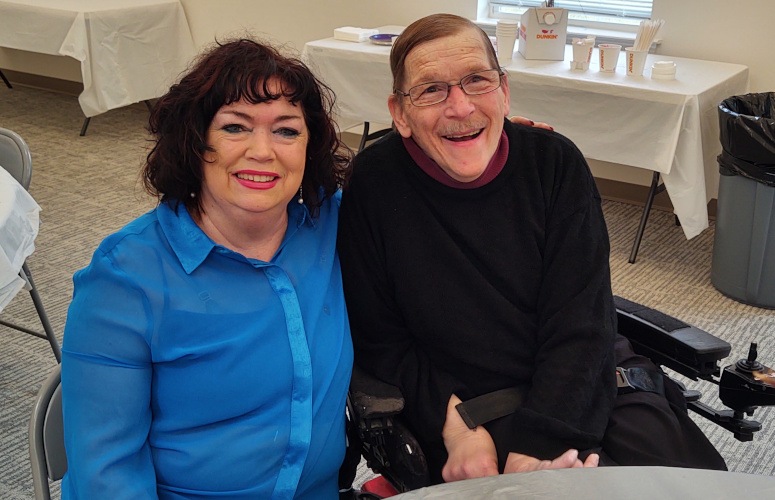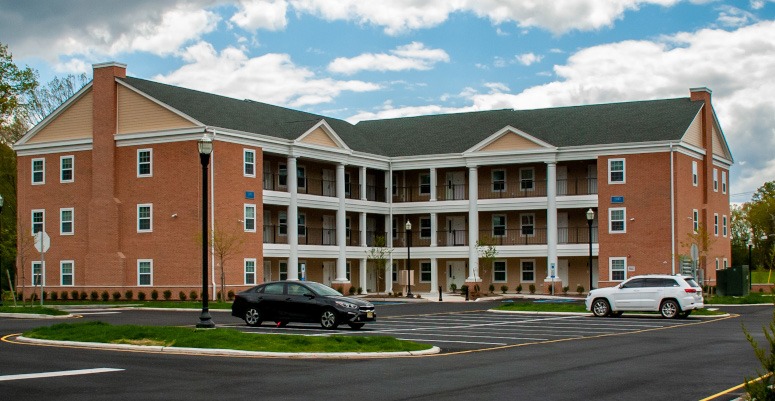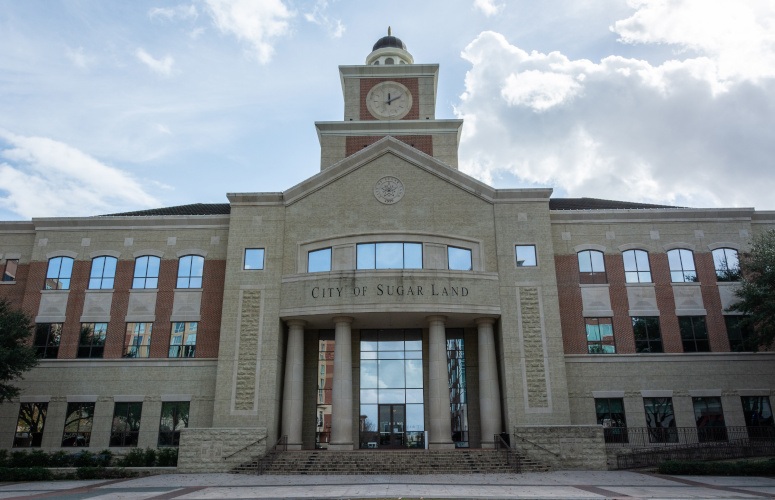
Project Freedom Celebrates 40 Years of Providing Independent Living for the Disabled
By Anthony Birritteri, Editor-in-Chief On Mar 21, 2024Norman Smith is a pioneer for freedom who, at age 70, has lived his entire life in a wheelchair. He calls himself a proud quadriplegic who has helped hundreds of disabled people like himself, live independent lives in barrier-free apartments at Project Freedom communities throughout New Jersey.
As Project Freedom celebrates its 40th anniversary this year, Smith looks back at what he and those who have helped him have created: a 501 (c)(3) non-profit organization that has developed 12 residential communities, known as Freedom Villages – in 5 counties. There are a total of 701 units across the entire spectrum of one-to-three story complexes with each one, other than the inaugural 30-unit facility in Robbinsville, consisting of 72 units. At press time, another 72-unit community is under construction and will open in Florence Township next year.
All of the communities and their units are 100% barrier free, wheelchair accessible campuses that feature open space designs for hassle-free mobility. Ranging from one-to-three-bedroom units, they are large enough to house families. Smith himself lives in the Robbinsville community with his wife Shirley, who like her husband, has cerebral palsy. The couple’s 16-year-old son, Joshua, lives with them.
Interviewed at Freedom Village at Hamilton Woods, Smith said his mission is all about freedom for the disabled.

Project Freedom’s Freedom Village in Hamilton.
“My first taste of freedom via independent living was when I was a student at Long Island University during the 1960s. I could do everything. I needed little assistance,” Smith recalls.
However, upon graduation, Smith had to go back to living with his parents because at the time, before the Americans with Disabilities Act (ADA) was signed into law on July 26, 1990, there were little to no options available to him in terms of independent living. His sole choices were to move into a nursing home or a group home for low functioning individuals.
Additionally, as a college graduate with a degree in journalism and political science, Smith had a difficult time finding employment as a journalist mainly because his cerebral palsy made speaking difficult (during this interview, his executive assistant Bashema Roundtree helped convey what Smith was saying).
“The minute potential employers heard my voice, they said I couldn’t do the job … but I understood that. So, I created a job for myself: Project Freedom,” he said.
Smith teamed up with Frieda Applegate, the executive director of the Nottingham Recreation Center for the Physically Limited, a facility Smith frequented with other young people his age. The group brought up issues of housing, employment, and transportation for the disabled and ways to find solutions for these challenges. Applegate told everyone that they must choose one initiative to be effective: The group chose housing.
Applegate joined Smith as the first executive director of Project Freedom. That was in 1983. It took eight long years for the first complex in Robbinsville to open. “This was a new idea and we had to overcome a lot of barriers. We wanted to change the course of people with disabilities who wanted to live independently. This was a new thought,” Smith recalls.
The group was assisted by many public officials, including former New Jersey Assemblyman and Hamilton Mayor Jack Rafferty who helped Project Freedom obtain seed funding of $150,000. The organization would eventually receive $500,000 from the Department of Human Services, $300,000 from the Mercer County Board of Freeholders, $600,000 from the Department of Community Affairs’ Balanced Housing Program and a $300,000 Small Cities Grant through Robbinsville. By 1988, Project Freedom had raised $2.7 million.
Coupled with assistance from Roma Bank, Project Freedom finally opened in Robbinsville in 1991 at a cost of $3.5 million.
Today, the organization has expanded with additional complexes in Hamilton (two sites), Hopewell, West Windsor, Lawrence, Woodstown, Toms River, Gibbsboro, Westampton, and Town Center South – Robbinsville, with the Florence Township facility opening next year.
Tracee Battis, the current executive director and CEO of Project Freedom, who has been with the organization for 12 years (before this, she spent 35 years with the New Jersey Housing & Mortgage Finance Agency), explains that all
Project Freedom tenants pay a monthly rent, but the rent is affordable. A one-bedroom unit, for example, rents at $850 per month. “It sort of operates like Section 8 housing, where one only pays 30% of their income towards rent. Some residents have jobs, some receive subsidies from the state, and many receive Supplemental Security Income (SSI),” Battis explains.
Besides rent, Project Freedom also obtains income through developer and property management fees. It also depends on philanthropic contributions.
Because of federal policies and New Jersey’s Mount Laurel ruling, Project Freedom also provides affordable housing for families in need, whether or not they are disabled. However, Battis explains that “anyone in a wheelchair gets a priority because of a federal rule that says if you build 100% barrier free, you must give a priority over the wait list to anyone in a wheelchair or needs a device.”
Because of the Mt. Laurel ruling, Battis says that municipalities often invite a Project Freedom development into their community. “With the ruling, municipalities are required to build so many units (of affordable housing). We are appealing to them. … They have an affordable housing requirement and money. They could purchase the land and pay themselves back from their affordable housing funds,” Battis says. “That is the formula for most of our properties.”
Because of her experience at the New Jersey Housing & Mortgage Finance Agency, Battis says she knows how to apply for competitive low-income housing tax credits that encourage private investment in affordable housing. According to the organization’s brochure, Project Freedom has achieved the remarkable feat of securing all 10 of its most recent projects through the first applications to the federal Low-Income Housing Tax Credit Program, which is run through the New Jersey Housing and Mortgage Finance Agency. As an example, in 2019, it received $13.1 million in tax credit awards for its Freedom Village at Hamilton Woods.
To celebrate its 40th anniversary, the organization will hold: a May golf outing at the Trenton Country Club; a grand reopening of its first facility, to be dubbed Robbinsville Legacy; a picnic for tenants at Mercer County Park; and a gala at the Stone Terrace in Hamilton, to which “everyone who has ever helped Smith along the way will be invited,” Battis said.
There were challenges and obstacles on the long 40-year road to Project Freedom’s success. Looking back to the beginning of the process, Smith said, “I was a naïve 29-year-old. … I’m now 70 and not so naïve.”
He sums up his ongoing mission by saying, “This is all about freedom!”
To access more business news, visit NJB News Now.
Related Articles:





